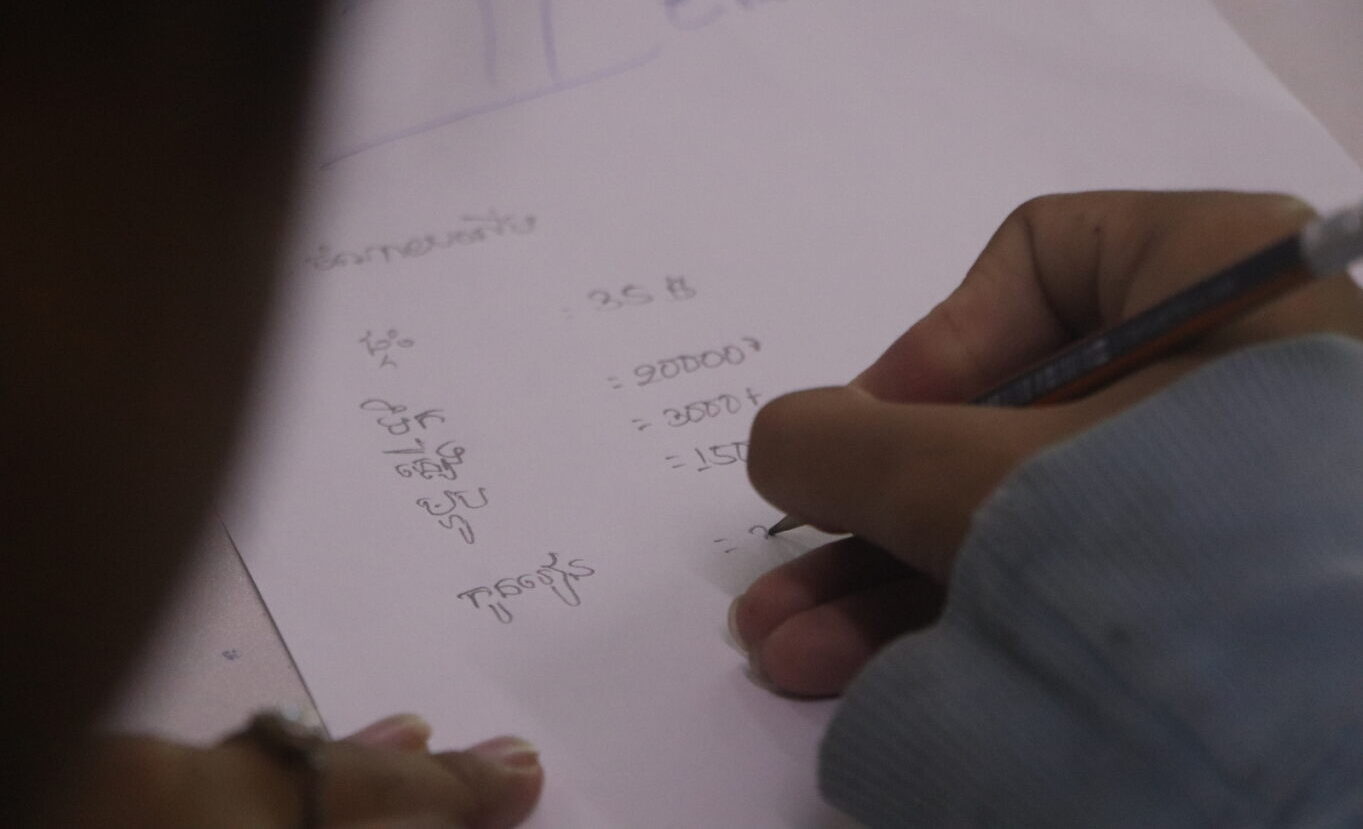On the outskirts of Phnom Penh, the factory’s classroom was a lively place, where the laughter of garment workers signaled the start of their daily lessons.
The sessions cover topics such as social protection schemes, gender-based violence prevention, and financial literacy.
Since 2022, CARE Cambodia has been collaborating with factories, unions, local partners, and donors to improve the well-being of garment workers, with a special focus on women and recently those who were significantly affected by the COVID-19 pandemic. During the lesson break, CARE had the opportunity to meet Lyhai to get her thoughts on what she has found important and what lessons are making an impact on her life.
“My name is Lyhai, I’ve been working with this factory for three years now, I’ve had the opportunity to attend these sessions twice already, covering various topics ranging from traffic safety to violence prevention.” During the lesson, Lyhai actively took notes and discussed the monthly breakdown of how her salary is spent as part of the financial literacy session at the factory.






